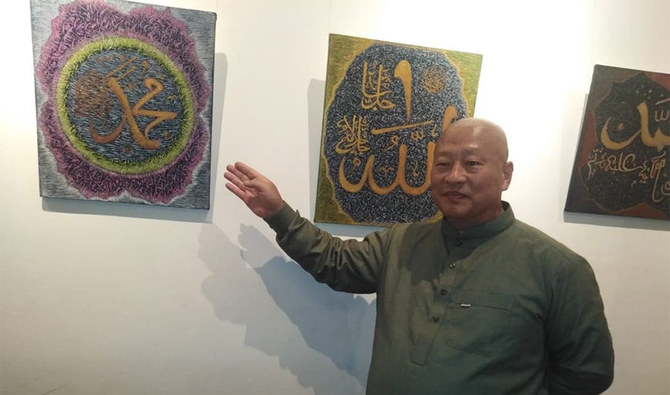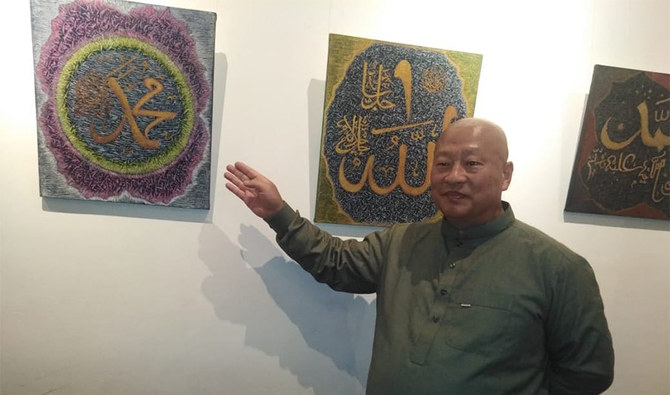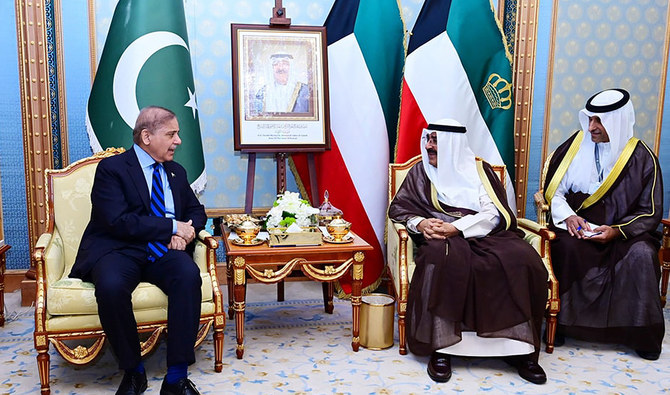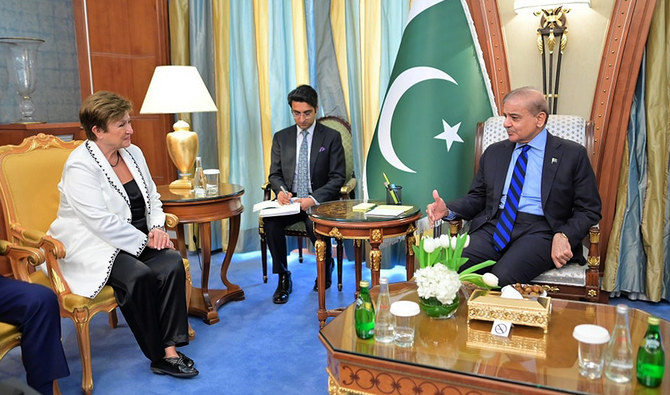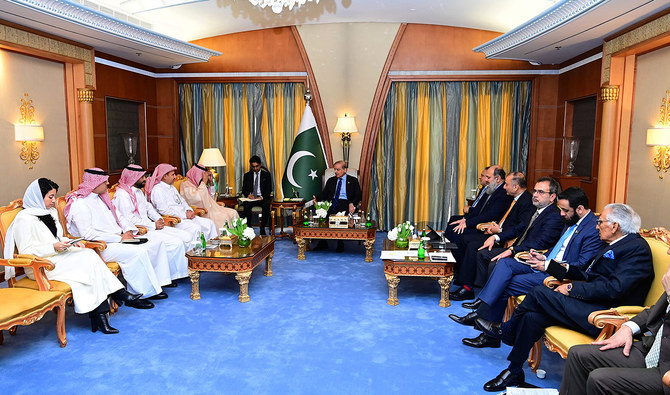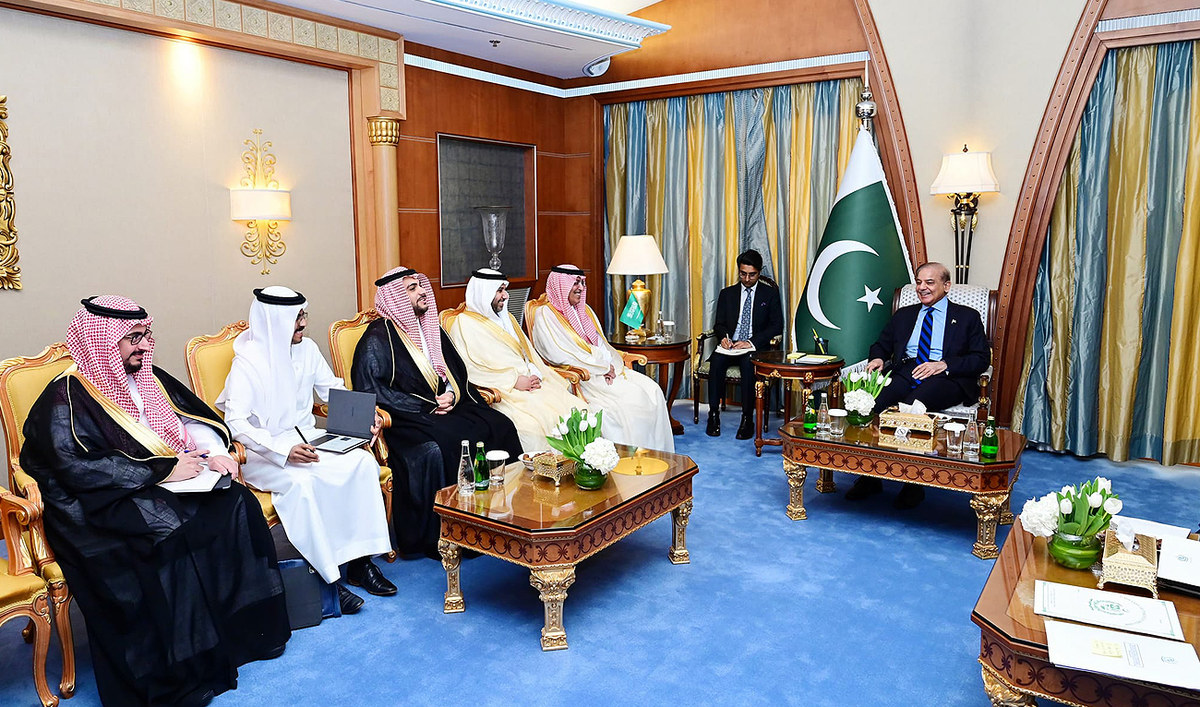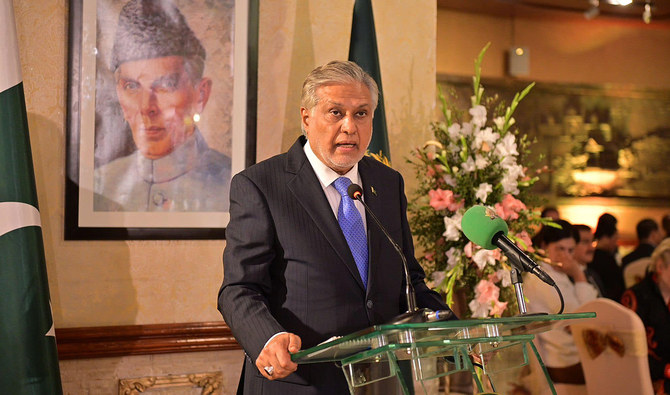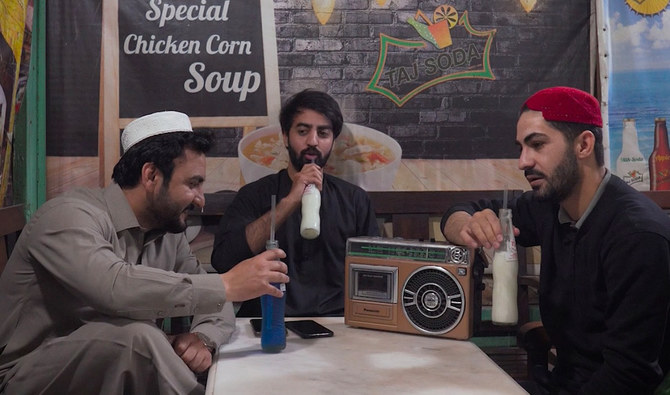ISLAMABAD: When in October a group of Buddhists monks came to pray for peace in Kashmir at the ancient Bhamala Stupa in Haripur, Khyber Pakhtunkhwa, one of them decided to stay longer in Pakistan, overwhelmed by what inspired his recent works in Islamic calligraphy.
“That peace prayer stirred up a thunderstorm with sudden flashes of lightening,” Neung Hur said in an introduction to a recent exhibition, in which he displayed 27 works bearing motifs common to the Muslim art of writing.
The South Korean doctor of philosophy and psychology has never studied calligraphy, the artistic practice is as new to him as the moving experience in Haripur.
“I was really stunned to see rare paintings made by a non-Muslim, which are impressive,” said Zahid Pervez Butt, the owner of Muhammad Art Gallery in Islamabad where the Buddhist monk’s works were presented on Dec. 5-9.
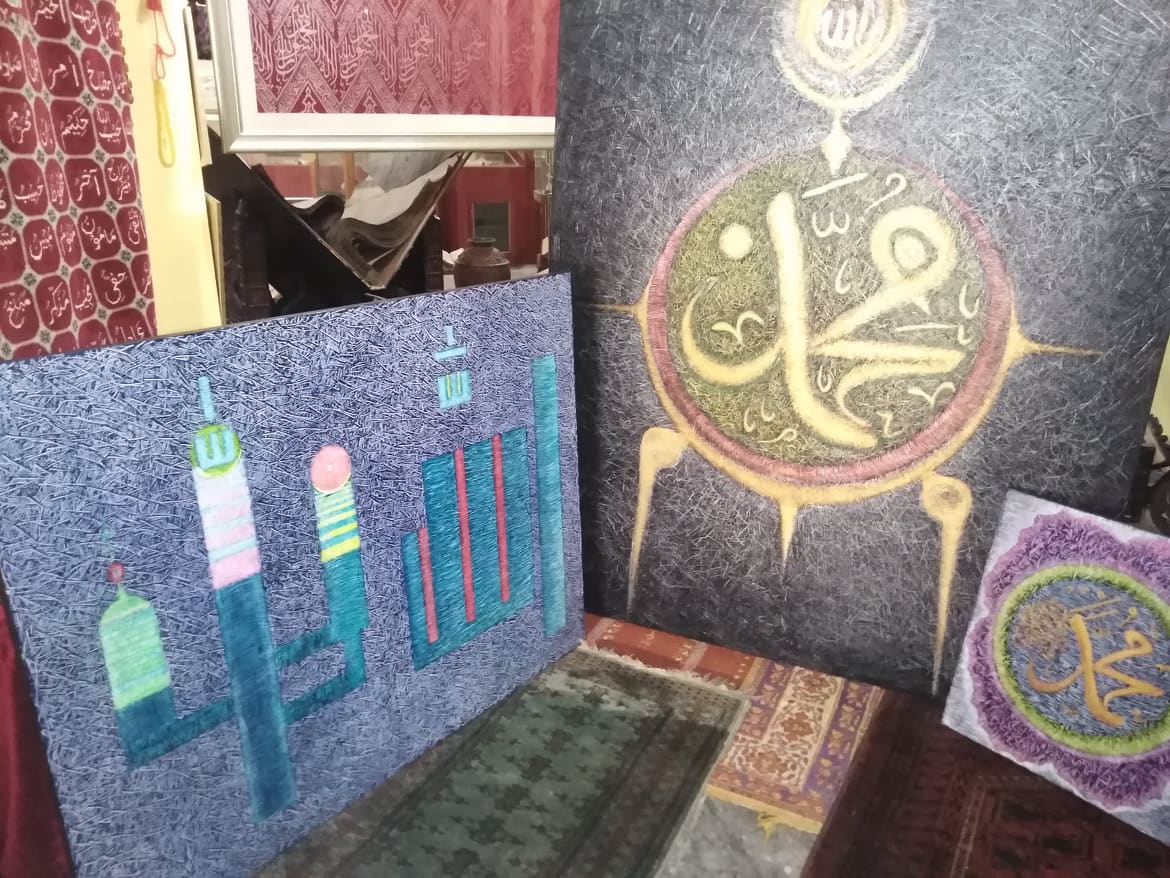
Calligraphic works by Buddhist monk Neung Hur are on display after his exhibition in Islamabad, Dec. 11, 2019. (AN photo)
In his artwork, Hur borrowed from aesthetic traditions he had observed during his visit to Pakistan. He fused them with the color symbolism of Buddhism and own aspiration to show and share light.
“The artist believes that God is best illustrated through light, and light is also a symbol of life. Living creatures cannot exist without light. Those who aspire to resemble God’s attributes must shine and help others shine with divine light,” the gallery said in its description of the exhibition.
Asked why he chose to use Islamic calligraphy as his medium, the monk told Arab News on Wednesday he “had to,” after the Bhamala Stupa experience during the Kashmir prayer.
His intention, as Muhammad Art Gallery explained, was to draw attention to “the universal human energy that unites us and lifts the veil over the facade of cultural diversity that divides us. The self-realization of the unity of human nature, paves way for interreligious understanding and world peace.”
Hur’s visit to Khyber Pakhtunkhwa played a role in his self-realization of the universal nature he cites. The monk’s interpreter explained the works were created following a tour of the Gandhara region in the Valley of Peshawar, which until the 13th century was a major center of Buddhism in the subcontinent.
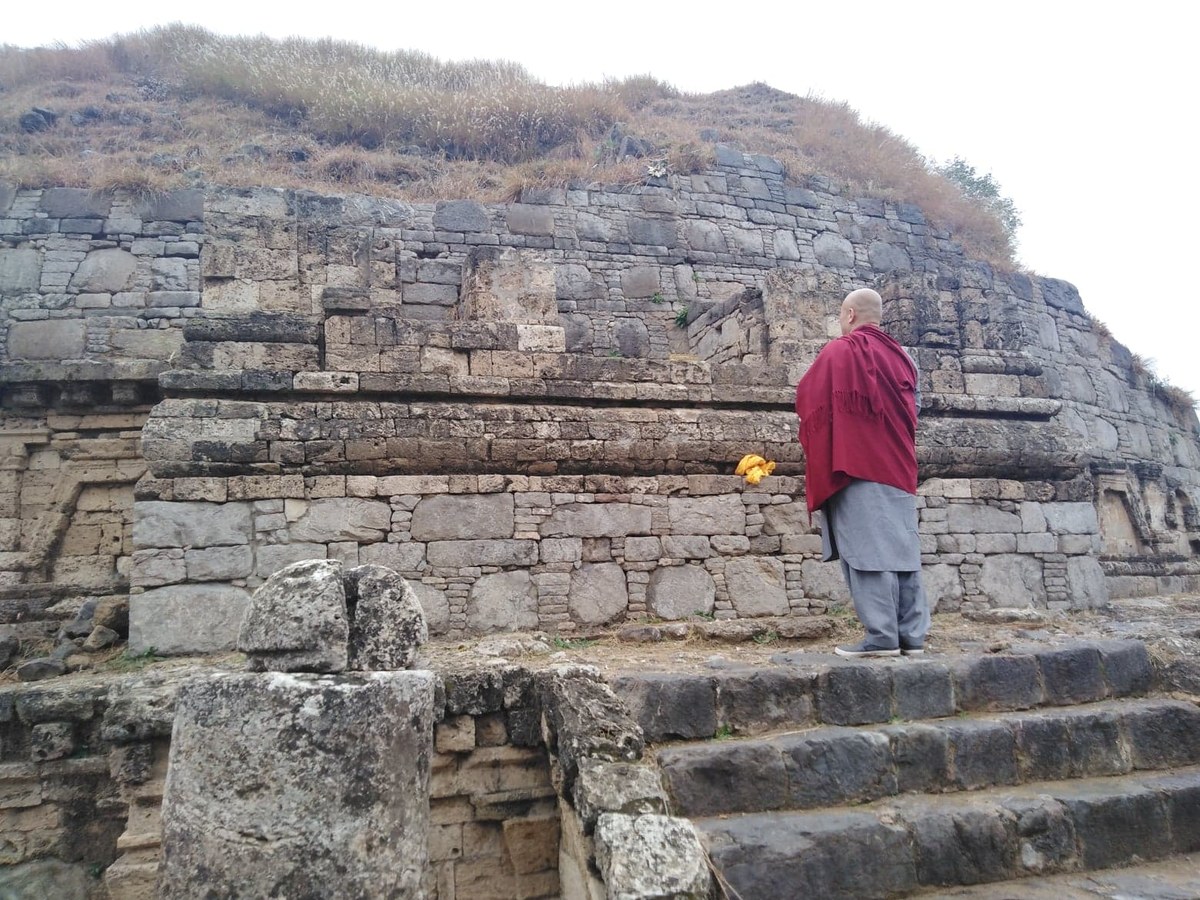
South Korean monk Neung Hur stands before the ancient Dharmarajika Stupa in Taxila, Punjab, on Dec. 11, 2019. (AN photo)
It appears that the Buddhist monastic wants calligraphy to become his way for promoting interfaith harmony and hopes to bring his work to the Middle East.
“I am planning to have an exhibition in Riyadh, which will help bridge the gap between different schools of thought and promote interfaith harmony,” he said.
The South Korean monk has served in monasteries in Tibet, Russia and Mongolia for over 20 years, devoting himself to spiritual healing.


